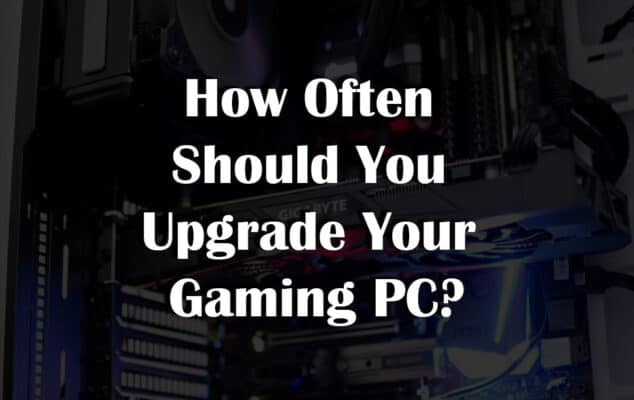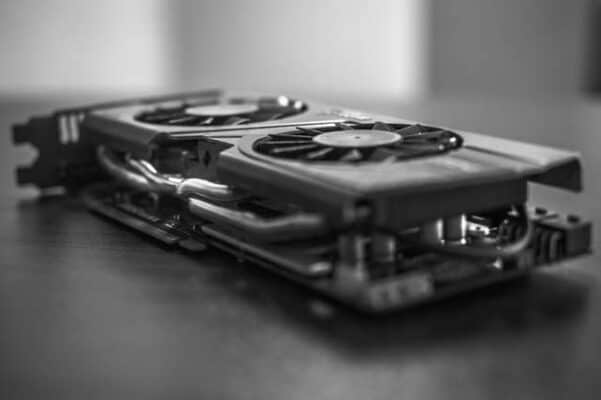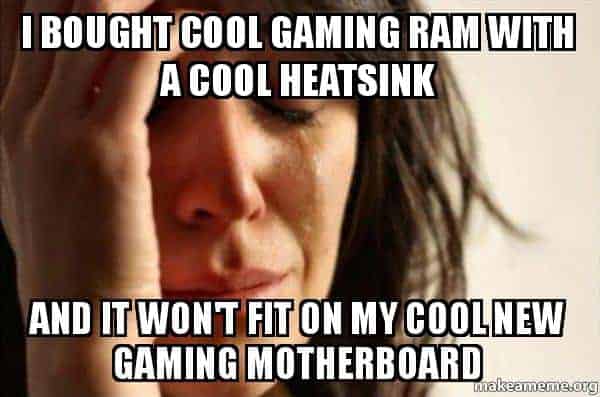You may be wondering about the answer to the question of how often should you upgrade your gaming PC. If you’re like most gamers, you’re always on the lookout for ways to get an edge on the competition. You may have even upgraded your PC in an effort to improve your gaming experience.
But is upgrading your PC really worth it? How often should you upgrade your gaming PC? And what factors should you consider when making this decision? In this blog post, we’ll explore all of that and more. So if you’re curious about the topic, keep reading.
So, How often should you upgrade your gaming PC?
You should upgrade your gaming PC every four years to ensure that your gaming PC is up-to-date with the hardware which consists latest CPU, GPU, RAM, SSD, and motherboard which can handle and run the new and upcoming highly demanding graphical games smoothly.
Gaming PCs are more expensive to purchase and maintain than most other types of computers. Hence to understand the answer to the question of how often should you upgrade your gaming PC, we want you to check the following factors into consideration as it will help you to understand your requirements.
1. What is your Gaming Style
The kind of PC you need to play your favorite games is determined by how fast and efficiently it performs certain tasks. We rank “style” first because that will help identify what level of gaming performance (or lack thereof) in exchange for specific features like cooling or budget price point may be on any given day.
So, Which type of games do you want to play & what is their minimum PC requirement?
| Gaming Style & Minimum PC Requirements | |||
| Gaming Style | CPU | Memory | Graphics Card |
| Platform Gaming or platformers | Intel Pentium 4 2.00GHz | 1 GB | NVIDIA GeForce 7200 GS |
| First-Person Shooter (FPS) | Intel Core i5-4430 | 4 GB | NVIDIA GeForce GTX 750 Ti |
| Third-Person Shooter (TPS) | Intel Core 2 Duo | 4 GB | NVIDIA GeForce GT 240 |
| Role-Playing | Intel Pentium 4 2.00GHz | 16 GB | NVIDIA GeForce 6100 |
| Real-Time Strategy (RTS) | Intel Pentium 4, 3.00GHz | 8 GB | NVIDIA GeForce GTX 1050 |
| Massively Multiplayer Online (MMO) | Intel Core i5-760 @ 2.8 GHz | 8 GB | NVIDIA GeForce GTX 460 |
| Sports/Racing games | Intel Core Core 2 Duo 2.4 GHz | 2 GB | NVIDIA GeForce 8800 GT |
| Casual Gaming | Intel Pentium 4 2.00GHz | 1 GB | Intel 82945G Express |
With the gaming industry constantly on the rise, it is more important than ever to have a PC that can keep up. Nowadays, people enjoy gaming in every way imaginable. That’s why there are so many options available when it comes to upgrading your PC for the latest and greatest games that will take full advantage of high-end components like CPUs or GPUs.
Also Read: Can You Use A Normal PC For Gaming? 7 Best Factors To Consider
2. Upgradability
The lifespan of your gaming PC is dependent on how well you take care of it. You should always upgrade when there’s a new generation that can offer more power, faster speeds, and larger storage spaces whereas older systems may not be able to keep up with these advancements so they’re upgradable but this isn’t always possible due to them being obsolete or no longer supported by the manufacturer.
Most people don’t think about their gaming PC as a vehicle for future upgrades. This should make you concerned because the components of your system will likely no longer be supported after 3-5 years and may not support next level requirements in another 5+ years.
Investing in a new gaming PC is essential if you want to keep up with your favorite games. We recommend choosing the latest components, like CPUs and GPUs that will last for 5-10 years while still being able to upgrade easily when necessary without having any major issues or expenses.
3. CPU/Processor
The most common question we get is how long a gaming processor will last. You should know that the lifespan depends on your cooling system and overall experience with it, but generally speaking, if you’re running an air-cooled setup then expect around 5 years before needing a replacement
Upgrading your computer’s processor is an essential part of gaming, as it will greatly improve performance. The best way to know if you need a new one or not would be by checking how well games run on the current setup and consider upgrading when they’re lagging heavily – though this can depend upon several factors such as graphics card type (more complex than just picking up another GPU), amount of RAM installed etcetera.
Also Read: How Many CPU Cores Do I Need For Gaming And Streaming? 4 Best Ways
4. GPU/Graphics Card/Video Memory
The lifespan of your gaming GPU/Graphics Card is dependent on many factors. For instance, the type and model as well how much you use them will determine their overall durability but also remember that it’s best not to let any damaged parts stay in contact with each other for too long. It is important to upgrade your graphics card every 2-3 years.
This will ensure that you have access to OpenGL 4 and other new features for gaming PC software, as well as ensure compatibility with future games on their respective platforms. Whether you’re a casual or professional gamer, it’s important to upgrade your graphics card with the latest technology onboard. Newer models offer more performance and can reduce input lag which makes them perfect for playing games at their highest possible frame rate!
Also Read: How Much Video Memory Do I Need For Gaming? 7 Best Ways To Find Out
5. RAM/Memory Card
Gaming RAM/Memory Cards are not as durable and can usually last anywhere from 3 -5 years. The amount of time your gaming RAM/Memory Card will last is determined by two factors. The first factor is how much you are playing and the second is what kind of game(s) are being played on which platform(s).
Also Read: How Much Does RAM Affect Gaming? 10 Best Ways To Find Out
The best way to ensure that your gaming PC has enough memory is by updating the RAM or upgrading it with new, faster sinking into place. Upgrading your gaming PC’s RAM can make a world of difference in how well you perform. We recommend that all our customers upgrade their memory at least once every two years and if they play often then even sooner.
Also Read: What RAM Speed Should I Get For Gaming? 8 Best Ways To Find Out
6. Motherboard
The lifespan of a gaming motherboard is typically around four or five years. A typical computer might last 2-3 years with moderate usage but when gamers want top performance they need something more lasting so their systems can withstand intense games without breaking down too often like high-end motherboards which usually offer great longevity even before adding upgrades like faster CPUs/GPUs.
Updating your computer’s motherboard is essential for maintaining optimal performance. You should do this about once every 7-10 years or when there are signs of wear-and-tear on the old components, in order to ensure that you have a stable system with no errors and maximum efficiency.
Also Read: How to Choose A Gaming Motherboard? 10 Best Factors To Consider
7. Internal Storage
The best thing you can do for your gaming PC is to keep up with storage upgrades. It’s not just about having more room on the SSD; there are some great deals these days where we’ll install an additional hard drive and give it all of those extra gigabytes.
The key here? Don’t wait until things start getting tight upgrade now so that way when games release next year (or later), they load quickly into their respective menus without any hiccups or glitches because we’ve already prepped them beforehand by installing plenty enough space ahead of time.
Also Read: Is An SSD Worth It For Gaming? 3 Best Factors To Consider
8. Power Supply (PSU)
You should upgrade your power supply every 3-5 years. This will ensure that you have enough juice for all of the latest hardware and software in modern gaming systems, as well as prevent any potential problems before they arise by replacing old components with newer ones.
For smooth performance and a long life span, you should change yours with an even newer model at least once per mentioned timeline but this depends on how often they’re used. If someone plays games all day every single week without taking time off then maybe he could go between upgrades sooner than the expected timeline.
What should I upgrade on my PC for gaming?
This is a question that many people ask what should they upgrade their PC for gaming. The answer depends on what kind of games you typically play and how old your current CPU, graphics card, motherboard, RAM are, and do they provide enough processing power to the demanding gaming style.
Should I upgrade my PC or buy a new one?
Upgrading your computer can bring you more speed and storage space at a fraction of the cost of new components, but there’s no point in putting the old system into good shape when it won’t deliver what you want. However, if the old system isn’t going to deliver on its promises then it would make sense not to put newly purchased components into an already outdated build which may only give minimal improvements in performance.
Also Read: How Long Will A Gaming Laptop Last? 7 Best Ways To Find Out
How long should a gaming PC last before upgrading?
Upgrading your computer periodically is a great way to make sure you’re always playing the latest games with the highest possible settings. A gaming PC can last for 3-5 years, depending on how much money people spend when they first buy it and what setting options are available in those titles that require higher specifications than older ones do.
Can a gaming PC last 10 years?
If you take good care of your gaming PC, then it will last for 5 years on average. You might even get 10 or more human years out of the hardware before they become obsolete! This is true regardless of what’s being used was high-end at purchase time.
When should I upgrade my PC?
New technology is always emerging and the latest computer will likely be outdated before long. A good idea would be to buy a new one every four years or when your current model begins crashing on you, whichever comes sooner.
Also Read: Can You Use A Normal PC For Gaming? 7 Best Factors To Consider
How often do gamers upgrade the CPU?
Gamers spend a lot of money on upgrades for their computer. They will often upgrade the CPU, graphics card, and memory if they notice that something is not performing optimally or rapidly enough with current equipment in order to get more performance out of it – especially when there’s an upgrade available!
Best Gaming PC/Pre-built Gaming PC
We all know that the best gaming experience is when you’re in total control. That’s why our top 5 list features only high-quality computers with fast refresh rates, low response times, and adaptive sync options to give your gameplay a premium feel.
The 15 best gaming PCs in this year’s market have been determined by our team of experts. We’ve researched and compiled a list that will suit any gamer, from beginner to pro.
| # | Name | Processor | Graphics Card | Storage | Memory | Our Recommendations |
| 1 | Alienware Aurora R10 | AMD Ryzen 7 3700X | RX 5700 XT | 512GB SSD + 1TB HDD | 16 GB | Read More |
| 2 | Dell G5 | Intel Core i7-9700K | NVIDIA GeForce GTX 1660 6 GB | 512GB SSD | 8 GB | Read More |
| 3 | Omen by HP Obelisk | Intel Core i9-9900K | NVIDIA GeForce RTX 2080 8 GB | 1TB SSD | 32 GB | Read More |
| 4 | Corsair One i160 | Intel Core i9-9900K | NVIDIA GeForce RTX 2080 Ti | 480GB SSD + 2TB HDD | 32 GB | Read More |
| 5 | CyberPowerPC | Intel Core i5-9400F | NVIDIA GeForce GTX 1660 6 GB | 240GB SSD + 1TB HDD | 8 GB | Read More |
Also Read: How to Choose a Gaming PC? 9 Best Factors To Consider
Best Budget Gaming PCs/Pre-built Gaming PC
In this article, we will be looking at the top 5 gaming PCs that offer an amazing experience for players. These budget-friendly and powerful machines come with all of your needs in mind – from graphics to power.
| Name | Processor | Graphics Card | Storage | Memory | Our Recommendations |
| Asus ROG Strix | AMD Ryzen 5 3600X | NVIDIA GeForce GTX 1660 | 256GB SSD + 1TB HDD | 8 GB | Read More |
| Dell G5 | Intel Core i7-9700K | NVIDIA GeForce GTX 1660 6 GB | 512GB SSD | 8 GB | Read More |
| CyberPowerPC | Intel Core i5-9400F | NVIDIA GeForce GTX 1660 6 GB | 240GB SSD + 1TB HDD | 8 GB | Read More |
| Intel NUC 8 VR | Intel Core i7-8705G | AMD Radeon RX Vega M GL | 2 TB SSD | 32 GB | Read More |
| SkyTech Archangel | AMD RYZEN 3 1200 | NVIDIA GeForce GTX 1050 Ti 4GB | 1TB HDD | 8 GB | Read More |
When shopping for a pre-built gaming computer, be sure to check out the product details and reviews online before making your purchase. The brands have been known to change these specifications at any given time so you might want to find an older model if possible.
So, how often should you upgrade your gaming PC? That’s a tough question to answer because it depends on so many factors. But, hopefully, we’ve given you a few things to think about and some guidelines to help you make the decision that’s right for you. Let us know in the comments what upgrades you’ve made or are planning to make and whether they worked out well for you!




